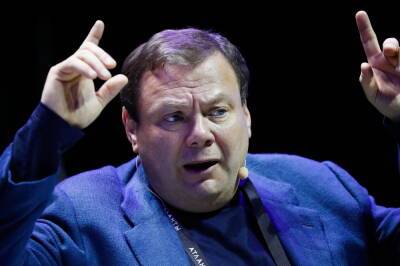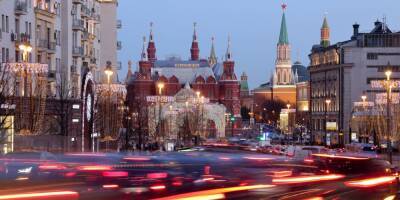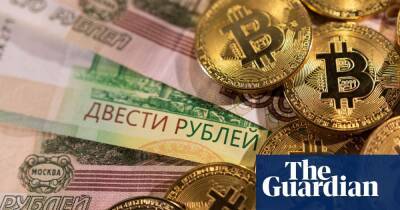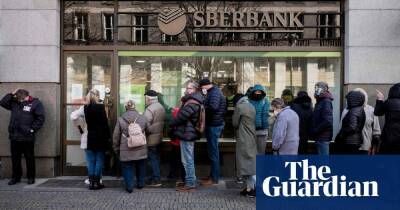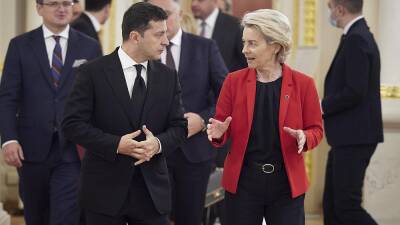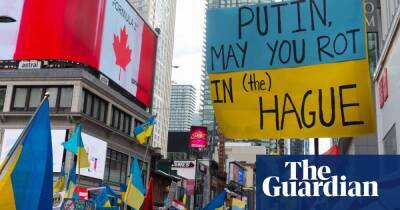Ukraine crisis: sanctions against Russia come at a cost to the west
After all the tough talk of the past month, the sanctions imposed on Russia by the west are unlikely to lose Vladimir Putin much sleep. The response to Boris Johnson’s announcement that five of the less important Russian banks and three individuals would be targeted was: is that it?
The most dramatic news was Germany’s decision to halt approval of the Nord Stream 2 gas pipeline from Russia to western Europe. That will have an impact, but may end up affecting Germany more than it does Russia.
The message from western capitals was that it was the plan all along to start small and then ratchet things up if Putin refuses to back down. Ben Wallace, the UK defence secretary, said there were several options to choose from.
The west’s problem is that sanctions against Russia come at a cost, and that cost goes up as the regime is tightened. One suggestion, for example, has been to remove Russia from the Swift network, a messaging system linking banks that facilitates international trade. Such a move would certainly hurt the Russian economy because it would affect its ability to export its oil and gas. William Jackson of the Capital Economics consultancy notes Iran’s economy shrank by 7% when similar measures were imposed on Tehran.
While Russia’s financial position is stronger than Iran’s, Jackson says the impact of tough sanctions might be to knock 4%-5% off Russia’s gross domestic product, push inflation above 10% and force the central bank to drive up interest rates to 14%.
But cutting Russia out of Swift would hurt the west too. For a start, it would raise the obvious question of how to pay for Russian gas. What’s more, the global cost of energy would be certain to rise – perhaps sharply.
So it looks likely that the west will adopt
Read more on theguardian.com


